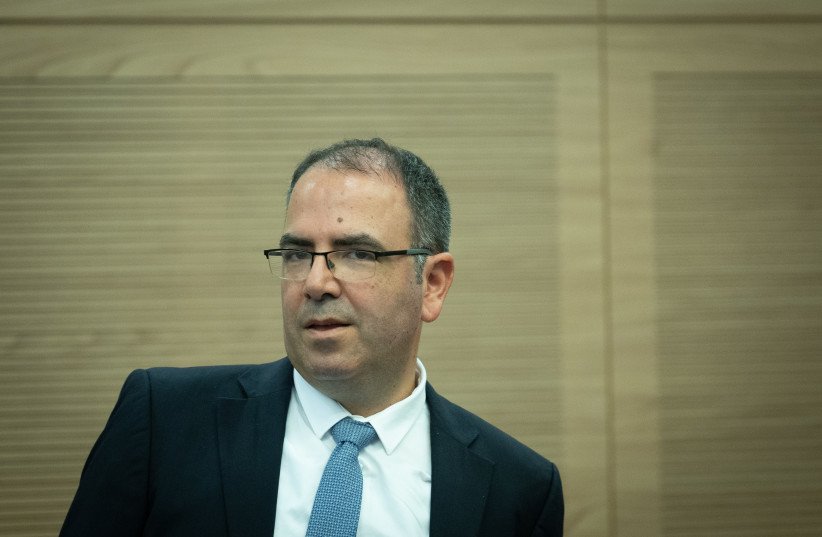A-G: Levin gets own rep for spyware case, but bias claims ‘baseless’
Justice Minister Yariv Levin and the government have been permitted separate legal representation against petitions challenging the formation of the spyware inquiry committee, Deputy Attorney-General Dr. Gil Limon notified in a Sunday letter, but his office also criticized Levin for claims that Attorney-General Gali Baharav-Miara had a conflict of interest with the investigation into law enforcement’s use of malware.
The government established the spyware committee on August 23 to investigate the “Pegasus affair,” in which NSO’s Ciphon malware was used to infect over a thousand phones beyond what was permitted by warrants and the law. The Attorney-General warned on August 26 against the government affording itself law enforcement powers.
A petition was filed on August 30 by an ex-Shin Bet (Israel Security Agency) director and former IAF commander, claiming that the committee was intruding into the judiciary and was designed to interfere with Prime Minister Benjamin Netanyahu’s ongoing corruption trial.
Exceptional circumstances surrounding the case
Limon said that, given the exceptional circumstances surrounding the case and past precedents, Levin’s Friday request for private representation was granted. Usually, the Attorney-General’s Office represents the government before the High Court of Justice, but in special situations outside legal aid can be sought – an exemption that has been frequently sought by Levin and other coalition members.
Levin’s argument for private representation based on the idea that the attorney-general’s legal opinion was motivated by the conflict of interest was “baseless,” said Limon.

Limon wrote that the opinion that the committee had no authority to interfere in pending criminal cases, including Netanyahu’s trial, was instead intended to address “legal flaws and fears of disrupting investigative and judicial procedures, while undermining the independence of the legal and judicial systems.”
The deputy said that his office was obligated to take action when the government exceeded the limits of the law or harmed the rule of law.
The committee was tasked to inspect the conduct and procurement of spyware by the police and State Attorney’s Office, which is a subsidiary of the Attorney-General’s Office. The government said on August 27 that the objective was to develop regulations for spyware so that law enforcement could obtain effective crime-fighting tools while also protecting privacy.
Retired judge Moshe Drori was selected to lead the commission, but former Shin Bet director Nadav Argaman and ex-IAF commander Amir Eshel cautioned in their petition that Drori had been chosen because of his criticism of Netanyahu’s corruption trial. They indicated that the committee could be used to investigate alleged use of spyware in the investigation into Netanyahu.
The security officials also claimed that the committee could reveal top secret methods used by the Shin Bet and other agencies, and that the damage to state security would outweigh any benefit that could arise from the inquiry.
The Shin Bet and Israel Police opposed the establishment of the committee, saying that it could impact their operations.




Comments are closed.